Ending oratio
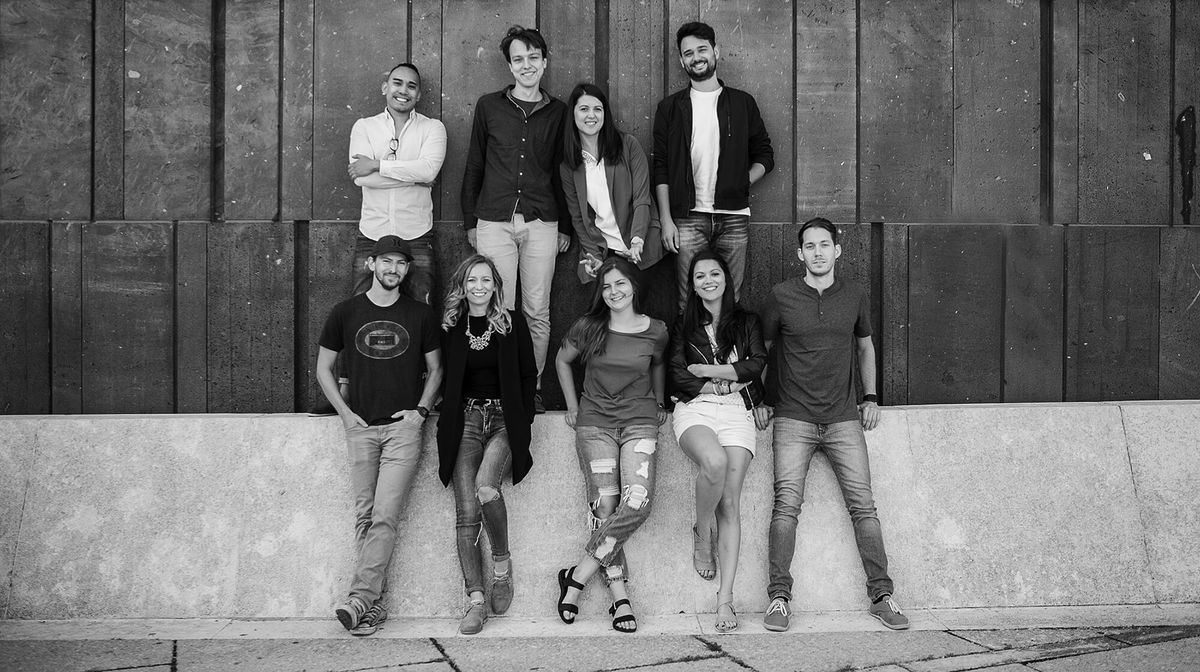
Today, I'm turning 30 and I would like to share with you my journey of ending oratio over the last couple of months.
As some of you already know, my co-founder David and I phased out our work at oratio over the past few months since we had to let go of our team in the last quarter of 2017.
What followed was some desperately needed time for myself. I traveled across Europe and Africa, met old friends and made new ones, came to rest, reflected on the last almost three years I spent working on oratio and became hungry again for new things to come.
First and foremost, this article is the result of more than half a year of writing, deleting, re-phrasing and reordering thoughts when they crossed my mind for the very first time since it was clear that we won't be able to work full time on oratio anymore.
What was oratio?

oratio was a Software-as-a-Service (SaaS) platform for businesses. It helped them to manage conversations with their customers on mobile messaging networks, which became widely popular over the last few years.
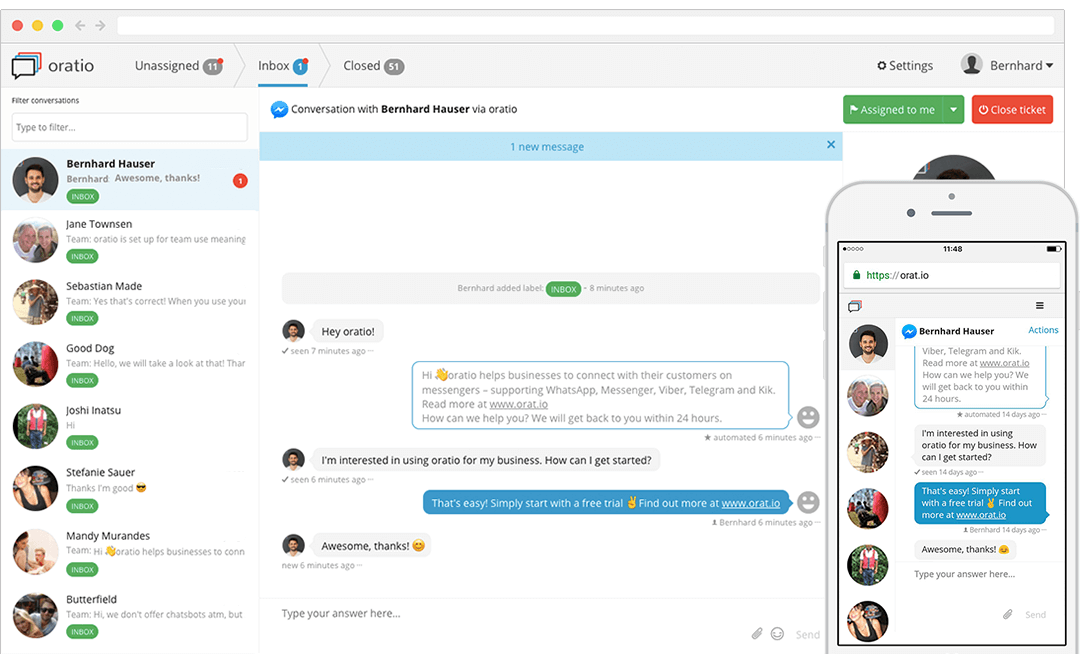
We supported several messaging networks such as Facebook Messenger, Viber, Telegram and Kik, but especially WhatsApp was by far the most popular network we supported – for good and for bad.
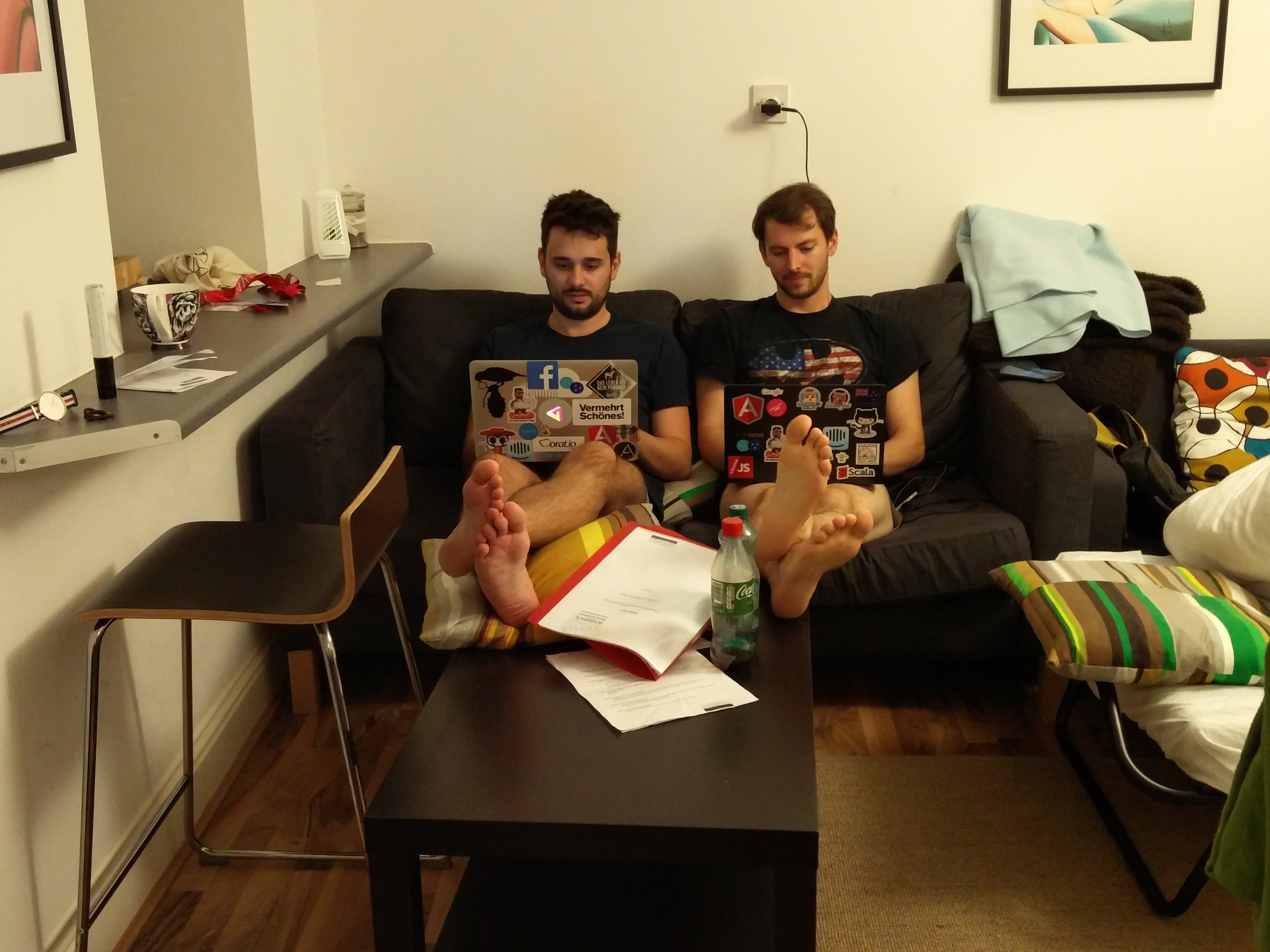
The core problem was that we had to build our own technology to make WhatsApp accessible for our customers which was a slippery slope as it turned out. Our idea was that this technology we built will act as a bridging technology until WhatsApp releases an API that we can work with. We thought of it as a jump start for our early product.
Although such an API was first announced as early as January 2016 by Jan Koum, co-founder of WhatsApp, as of writing this article no API has been released.
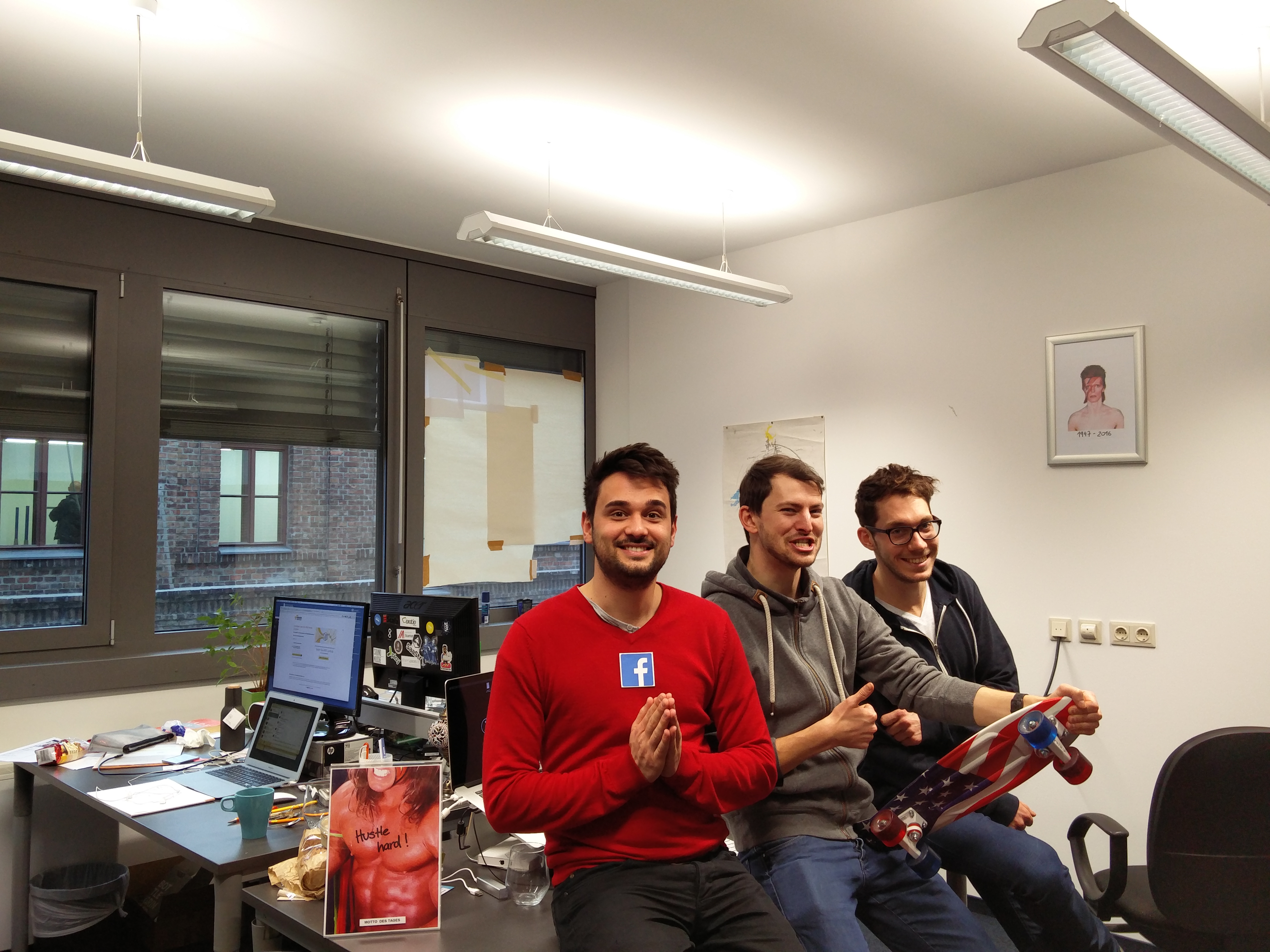
What this meant for oratio
The situation became quite tricky for us. On the one hand we were able – through our own technology – to connect one of the world's most important messaging networks to our platform, on the other hand we had a technology which was never intended to be highly scalable.
However, we decided to continue supporting it for the time being and eventually built a growing company with $20,000 monthly recurring revenue and two-digit growth rates in less than 16 months.
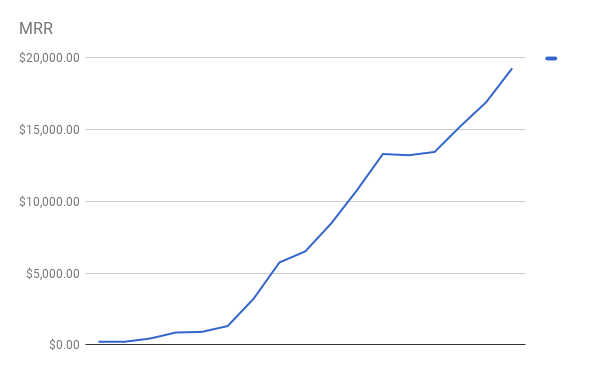


We had a pretty good run especially in 2016 when Facebook released the Messenger Platform. The momentum in the market was crazy! Everyone was talking about bots, bots, bots and we were just at the epicenter of it. It was around that time when we hosted our very first ChatbotConf in Vienna, which was a great success.
I think it was around Q3 2016 when I started to look for institutional investors after being accepted into Seedcamp earlier this year. Our goal was to raise €500k+ to further support the growth of our company.
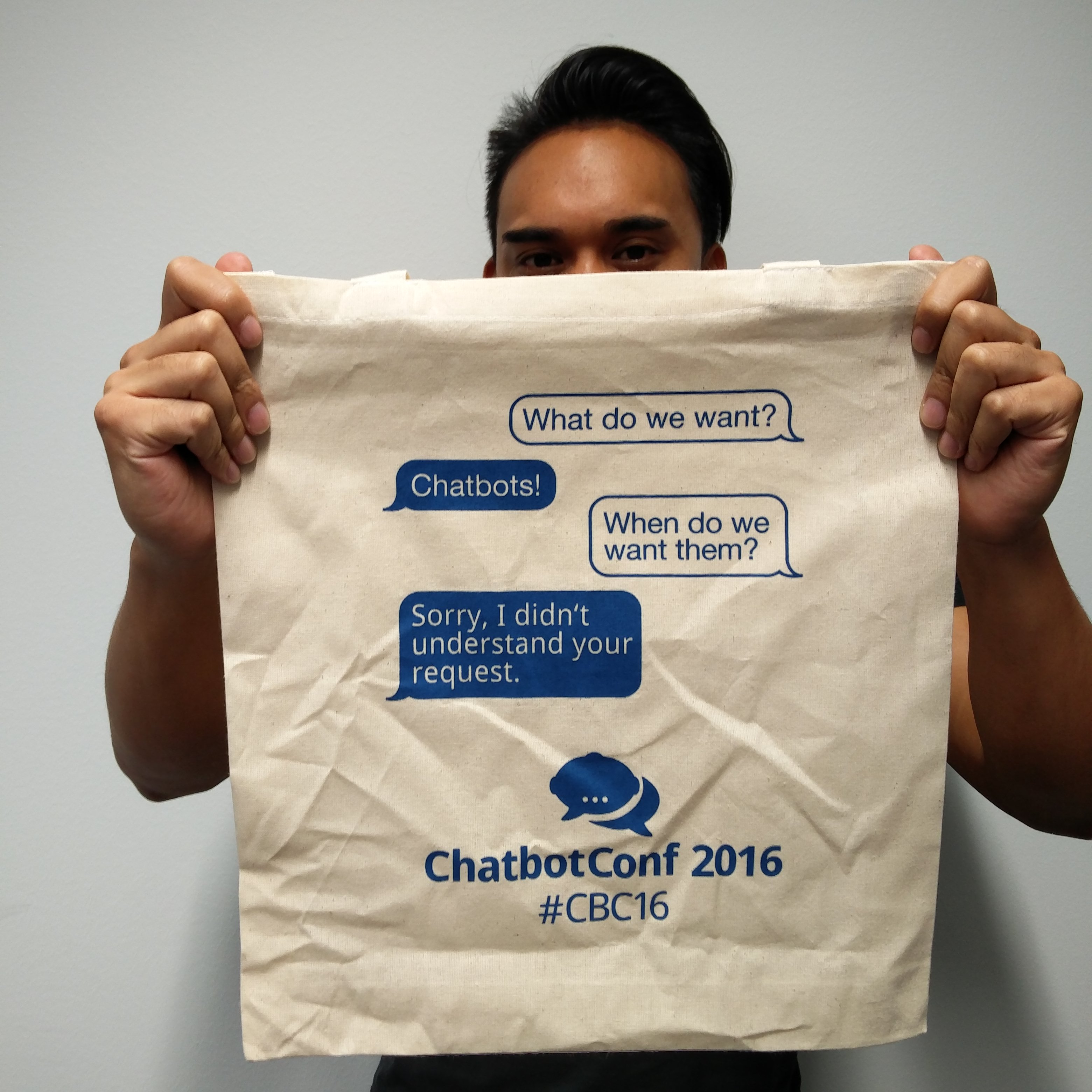
We were still supporting WhatsApp at this time which increasingly became a challenge. We had hundreds of physical SIM cards at our office, all connected to virtual WhatsApp instances on our servers. The technology we built became a bottleneck, since it was never meant to be used at scale.
The more customers we onboarded, the more resources we had to allocate towards fixing bugs and improving the technology just so far to make it work again.
Imagine spending hours every week sending emails to customers that you are sorry about the service interruption while figuring out with the tech team why it stopped working and how it can be fixed. It was an uphill battle.
We eventually decided around April 2017 to deprecate WhatsApp on the platform. It was a tough decision, but it just didn't make sense for us anymore. Today, I would make the same decision again (if not way earlier).
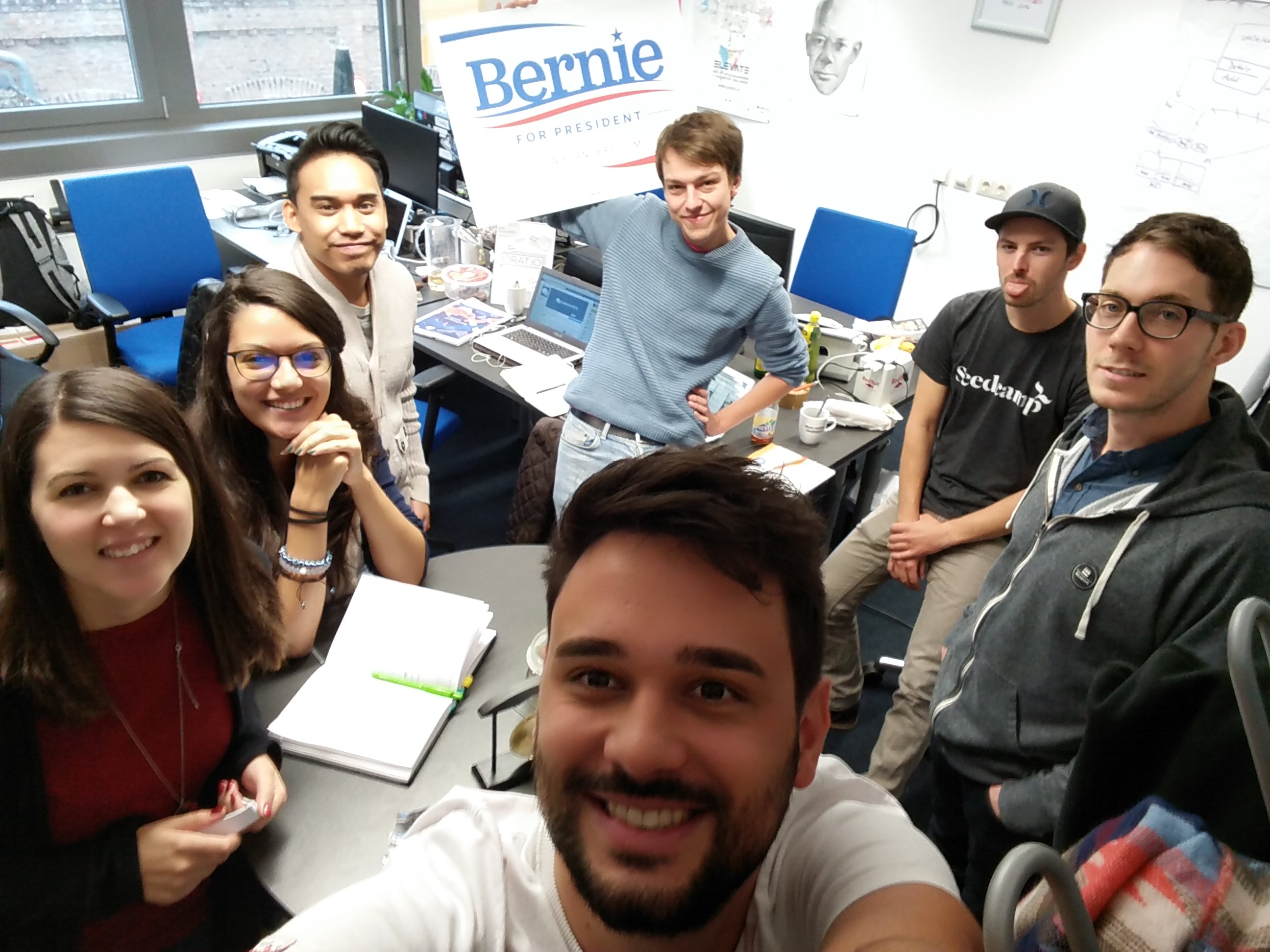
With the resources freed up from the ongoing support for WhatsApp, we would finally be able to fully focus on the remaining messaging networks and build an outstanding product that helps businesses to interact with their customers on messaging networks, either manually or automatically with support from smart chatbots.
It turned out however that the vast majority of our customers (around 90%) was only interested in WhatsApp, since we were one of the very few companies in the market being able to support it. Those customers left after we deprecated it, one after the other. Ouch.
The reasons
While I think we did a lot of things right, there are of course reasons why oratio eventually failed. From my point of view, most of them boil down to three main causes.
1. Among others, we bet too high on the market
Although we published the first release of oratio in October 2015 when chatbots were not a hot topic at all, the release of the Messenger Platform by Facebook in April 2016 changed everything and we were part of this market whether we liked it or not.
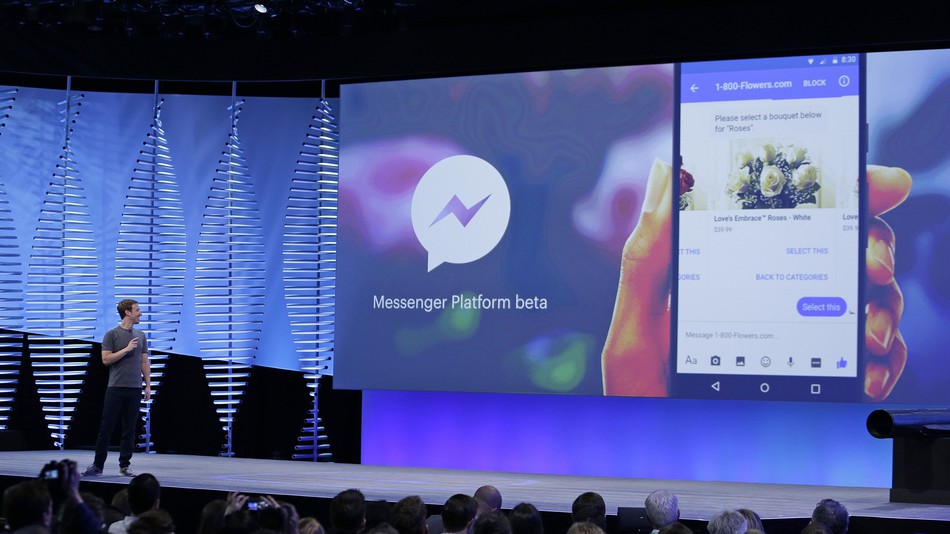
What followed was a crazy year of hypothesis what chatbots can be used for and what problems they are going to solve. Frankly, only a few use cases sustained.
For me, the essential question throughout the last years has always been Will messaging and chatbots be a market niche or can a substantial product be built around these topics?
While it may still be too early to tell, I'm leaning towards seeing them as an add-on to existing products rather than anything else. The fact that as of writing this article Facebook suspended accepting new bots to its platform tells a lot about its current status and priority.
Dave Feldman, former Product Design Manager for Messenger platform, wrote a great article on why bots failed to enter the mainstream market.
(...) the lack of widespread enthusiasm can’t help but affect the platform-makers themselves. It seems likely they’ll divest resources, and that’s a vicious circle: less platform investment means less developer interest, means less platform investment, and so on.
While I think messaging is definitely here to stay, chatbots as we see and use them today are not ready to deliver any significant improvement in terms of user experience yet.
2. We didn't raise money when we had the chance to
When we turned down a €500k termsheet in July 2016, I think this was the single most remarkable mistake we founders made. However, I would argue that it's up to debate whether we would be better off now with or without the money and its strings attached.
In mid 2016, we were in talks with some very well known venture capitalists from London, New York and Berlin. At the same time we started talking with an institutional Austrian VC and they almost immediately offered us a termsheet. But we thought we could get one of the top notch investors on board and eventually turned down the Austrian VC.
Soon later it became clear that the other VCs would not invest and we ended up with no institutional funding.
Later I realized these investors were only playing for time as they were not sure whether the chatbot market will flourish or not. It took me a few months to learn the 'investors game' with its rules and pitfalls. At the same time, the market continued to cool off which made it in fact harder and harder for us to secure funding.
My learning was that as a startup, if you decide to raise money you either have an oustanding piece of technology and hence intellectual property or your product is so good it's growing organically like crazy.
In oratio's case, the platform was indeed growing organically, but exclusively by signing up businesses on WhatsApp. And that was strategically problematic.
3. A product strategy built on false positives
As mentioned earlier, deprecating WhatsApp was the right decision. Actually, we should have deprecated it even earlier as this decision would have changed the company's direction substantially.
When we discussed our product roadmap and potential features with our customers, we didn't realize that it almost didn't matter what we built as long as we supported our most popular network. In terms of product development, we were blind on one eye and trapped in a tricky situation at the same time, to sustain the growth the company was relying on.
Learning about priorities
Especially in 2017 it became clear that we would not be able to raise money any time soon while I had to take care that our employees still get their monthly salaries on time. This put me under a lot of pressure and forced me to think twice about every Euro we had in our bank account while still maintaining a positive outlook for our company.
I also made important learnings about managing tasks and prioritizing work. My personal observation was that I had not been more productive when I stayed at the office for nine compared to eleven hours a day. Hence I have a different view on entrepreneurs who pride themselves with working countless hours overtime. I deem what to work on and who to work with to be more important.
Additionally, I can recommend other founders to not forget living a balanced lifestyle including regular physical activity. Spend time with people you really care about whether it's good friends or your significant other. It helped me to change my perspective and in particular to refresh my mind when times were rough.
Ending oratio
For a long time I was constantly asking myself Is it still worth it, Bernie? and the answer has always been Yes up until a few months back.
I know from previous projects and companies that there is a certain point you reach when you have to decide when it's time to pull the plug. When I finally reached that point I eventually realized that... well, life goes on.
This is not the end. We will work on different problems and one day we will look back and say 'at oratio we had an incredibly good time and we gained so much experience from it' and actually, that is how I'm already seeing it today.
One of my biggest concerns was that I wasted the last three years literally for nothing, but I soon realized that all the things we achieved and the countless things I learned about:
- hiring people
- building teams
- understanding culture and its importance
- building business processes
- taking care of financials
- designing corporate identities, user interfaces and landing pages
- bullshitting with lawyers
- running online marketing campaigns
- developing sales and pricing strategies
- learning when to say 'Yes' and more importantly, 'No'
- building an incredible network of smart and inspiring people from all over the world
...now puts me in a position hardly anyone else gets the chance to be in.
I learned what it takes to build something people want. I can now build a digital product in less time with less resources. I haven't peaked yet and I know that I wouldn't have peaked while continue running oratio.
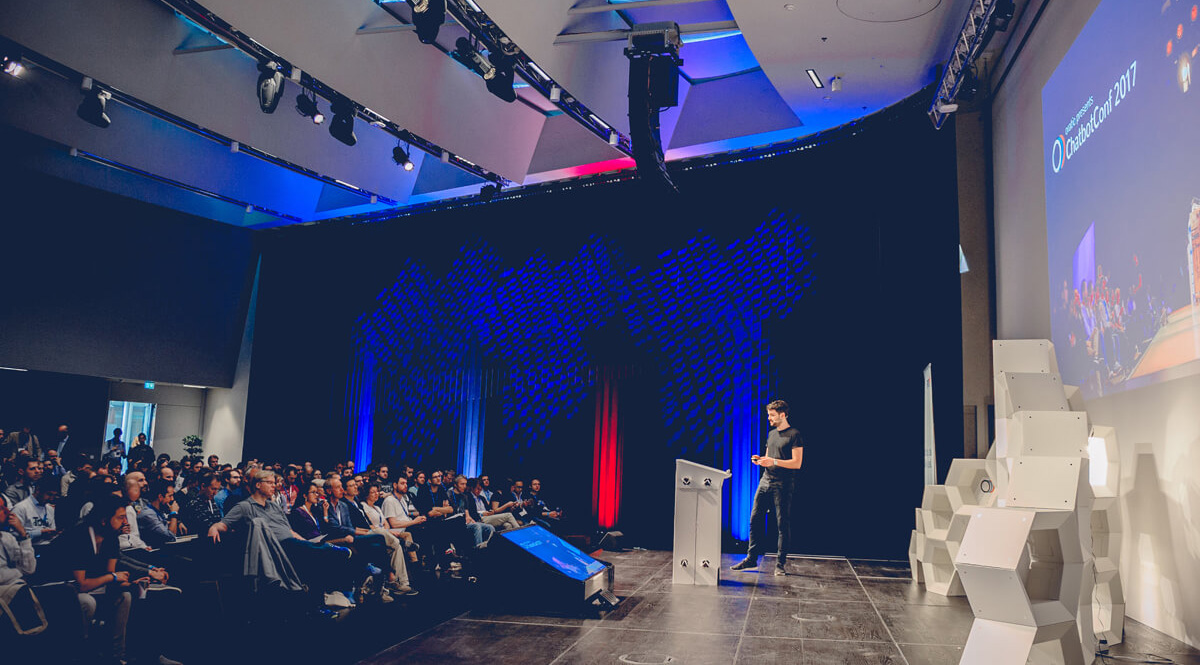
What comes next
Just recently I moved (back) to Berlin and started advising startups as well as established companies on product & business development with ⭕️ Hauser.
Never would I have thought that I would get into the consulting business (and I still hate that term) and as a startup I would never have thought about hiring someone to advising me on how to run my business, but many people approached me in the last few months and it's a hell lot of fun. It really is!
I'm really privileged to work with so many smart and ambitious minds and on top of that I think Berlin is probably Europe's most interesting city to be in right now.
Advising companies is an opportunity for me to get in touch with different problems, business models and markets both geographical and industry-wise to learn a lot.
If you want to know more or just talk to me, reach out. I'm serious! I value conversations with people to learning about their ideas and visions as these connections usually tend to have interesting outcomes for both sides.
Thank you
Our journey over the last years would not have been possible at all with the help from:
- Everyone from Team oratio (special thanks to my co-founder David, Lisa, René, Kristy, Ash, Vilyana, Piotr, Viktoriya, Karyna and Ioana)
- Seedcamp (special thanks to Reshma, Carlos, Sia and Dave)
- INiTS (special thanks to Irene, Hossam, Valentin and Thomas)
- Wirtschaftsagentur Wien (special thanks to Christoph and Gabriele)
- Facebook (special thanks to Mikhail)
- All guests who attended our conferences ChatbotConf 2016 and ChatbotConf 2017
- Everyone who supported and used our product ❤️